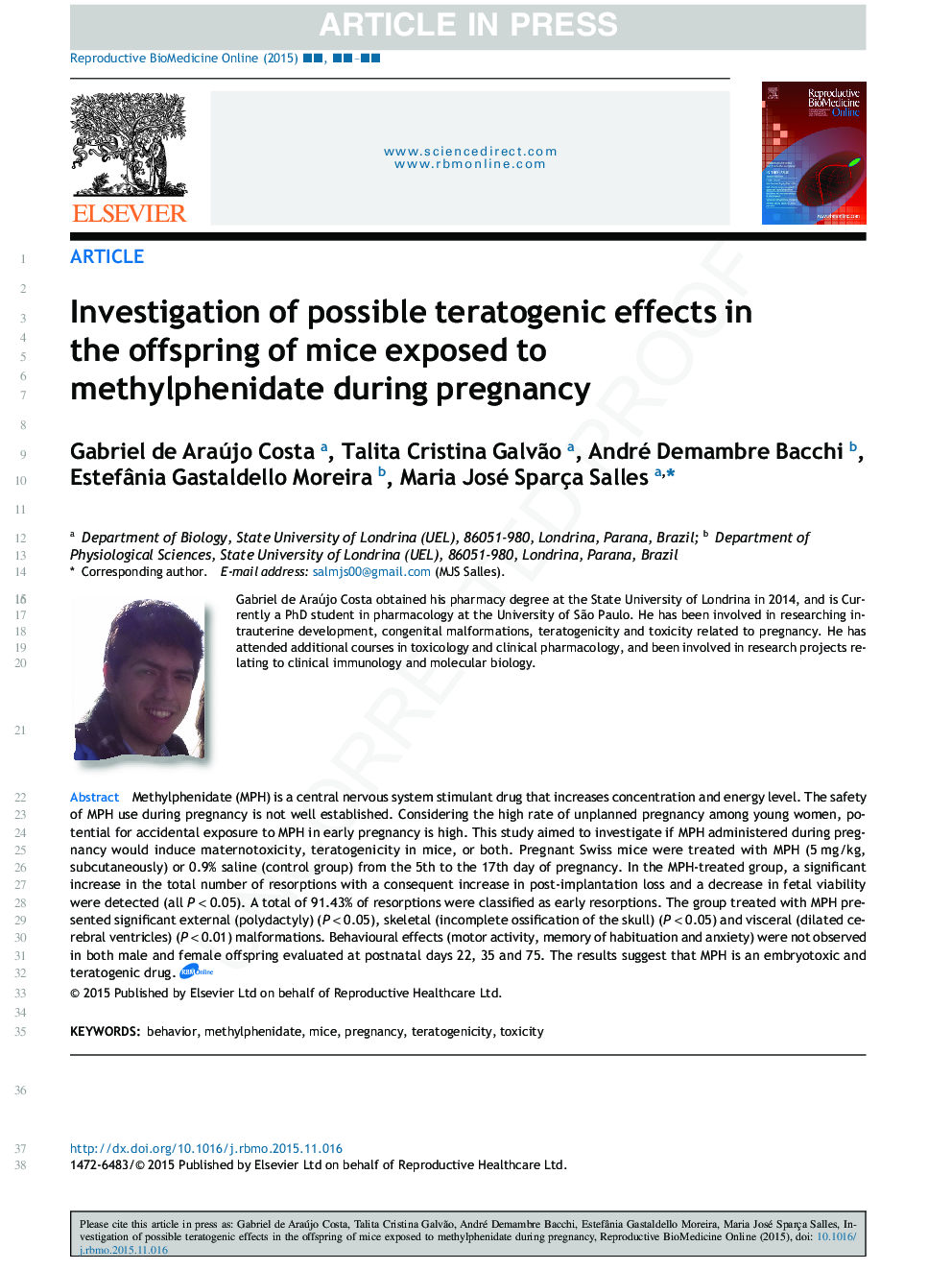| Article ID | Journal | Published Year | Pages | File Type |
|---|---|---|---|---|
| 6188630 | Reproductive BioMedicine Online | 2016 | 8 Pages |
Abstract
Methylphenidate (MPH) is a central nervous system stimulant drug that increases concentration and energy level. The safety of MPH use during pregnancy is not well established. Considering the high rate of unplanned pregnancy among young women, potential for accidental exposure to MPH in early pregnancy is high. This study aimed to investigate if MPH administered during pregnancy would induce maternotoxicity, teratogenicity in mice, or both. Pregnant Swiss mice were treated with MPH (5âmg/kg, subcutaneously) or 0.9% saline (control group) from the 5th to the 17th day of pregnancy. In the MPH-treated group, a significant increase in the total number of resorptions with a consequent increase in post-implantation loss and a decrease in fetal viability were detected (all P < 0.05). A total of 91.43% of resorptions were classified as early resorptions. The group treated with MPH presented significant external (polydactyly P < 0.01), skeletal (incomplete ossification of the skull P < 0.01) and visceral (dilated ventricles P < 0.05) malformations. Behavioural effects (motor activity, memory of habituation and anxiety) were not observed in both male and female offspring evaluated at postnatal days 22, 35 and 75. The results suggest that MPH is an embryotoxic and teratogenic drug.
Related Topics
Health Sciences
Medicine and Dentistry
Obstetrics, Gynecology and Women's Health
Authors
Gabriel de Araújo Costa, Talita Cristina Galvão, André Demambre Bacchi, Estefânia Gastaldello Moreira, Maria José Sparça Salles,
